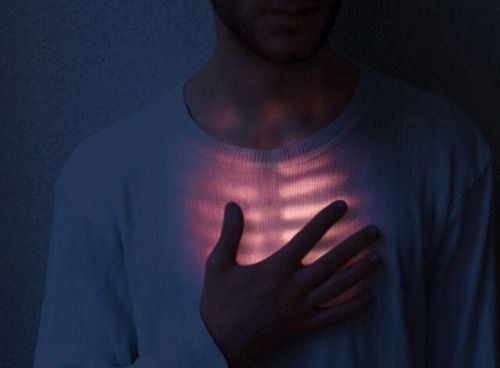Do You Know What Complicated or Pathological Grief Is?

If you have dealt with the loss of someone very close to you, you may know we’re talking about. Complicated grief, or pathological grief, is like a tornado of pain growing inside, making it harder and harder to breathe — and live. It is comfort that won’t come, despair that won’t go away.
Grief, a completely normal phase we all go through when we lose someone (or something) important in our life, is already a painful time. But when it doesn’t end and keeps us from living in peace, we’re talking about something else. That qualitative leap takes us into pathological grief.
But how can we distinguish one from the other? It’s very important to notice these differences because it will determine how you deal with them.
Complicated grief happens when pain is bottled up or denied
There are many people for whom pain is like quicksand. They want to get out, but the more they move or kick they more trapped they feel. Many times the reason they feel this way is because they haven’t learned how to relate to their own pain.
And maybe that’s because they haven’t admitted that the pain exists. In fact, many people trapped in complicated grief have never admitted that they’re in pain, however obvious the symptoms are.
Think about what society tell us: “Pain is weakness, you have to be brave.” It silences us and makes us bottle it up, where it just concentrates and turns into a time bomb.
This type of thinking does not help the mourning process move forward. It makes it worse. So many people deny their grief. They have to be the rock of their family and not look vulnerable. Because “now is not the time to be sad.” “He wouldn’t have wanted me to be sad”.

These thoughts do nothing but lead to pathological grief. The more effort I make to cover something up, the more I magnify what I’m covering, while also giving it control. There will come a point when the pain will erupt like lava from a volcano.
Our body is wise and will express pain even if our mind tries not to
If there is something in our body that we’re repressing, it will come out some another way. People with pathological grief often develop somatic symptoms. What does not come out in words will come out in a corporal or behavioral way. We cannot deceive ourselves. We are both mind and body. They are intimately linked.
Other times, grief turns complicated when the years pass and suffering remains. When it doesn’t diminish in intensity or turned into a life lesson.
The normal “symptoms” of grief intensify. They can create depression, anxiety, and an inability to adapt at a behavioral level, interfering in a person’s daily life. In these cases, something needs to be done as soon as possible to prevent even more complications.
Therapy will help you find meaning in this painful experience
It is very important not to deny your emotions, but it’s also important to work with them so they don’t overwhelm you to a point that makes life impossible. Therapy will help us to work with the loss.

It is extremely helpful to have someone to share our pain with. Someone who we can gradually help us find meaning in this experience. A painful experience, but an experience full of lessons about life.
Don’t hesitate to ask for help when you need it. Do not repress your true emotions because of how you’ve been taught you “should” react. Each person reacts differently. Listen to your body and give it a chance to heal.
This text is provided for informational purposes only and does not replace consultation with a professional. If in doubt, consult your specialist.








